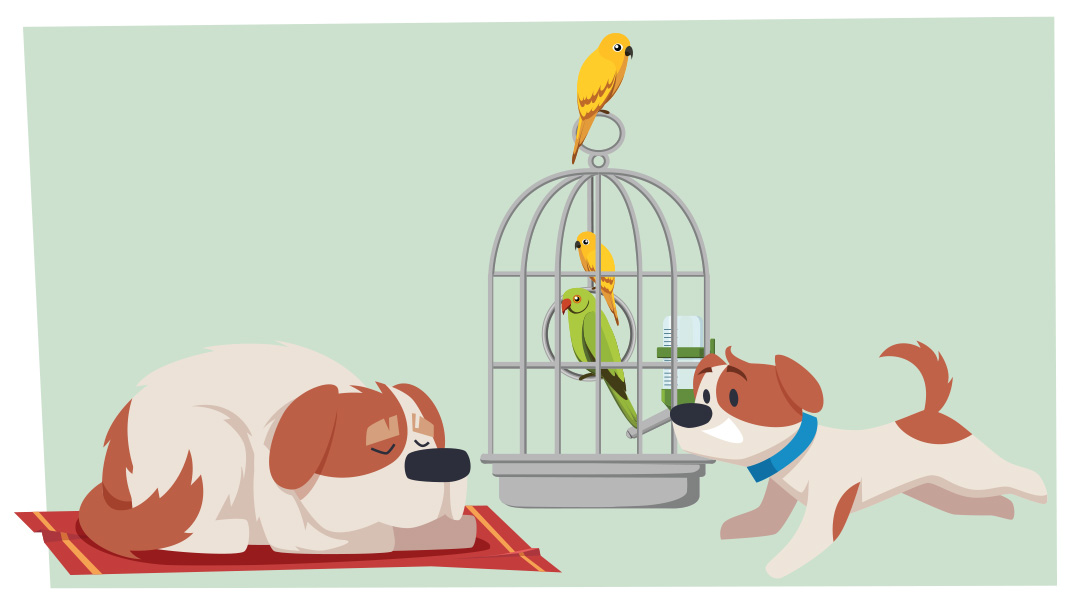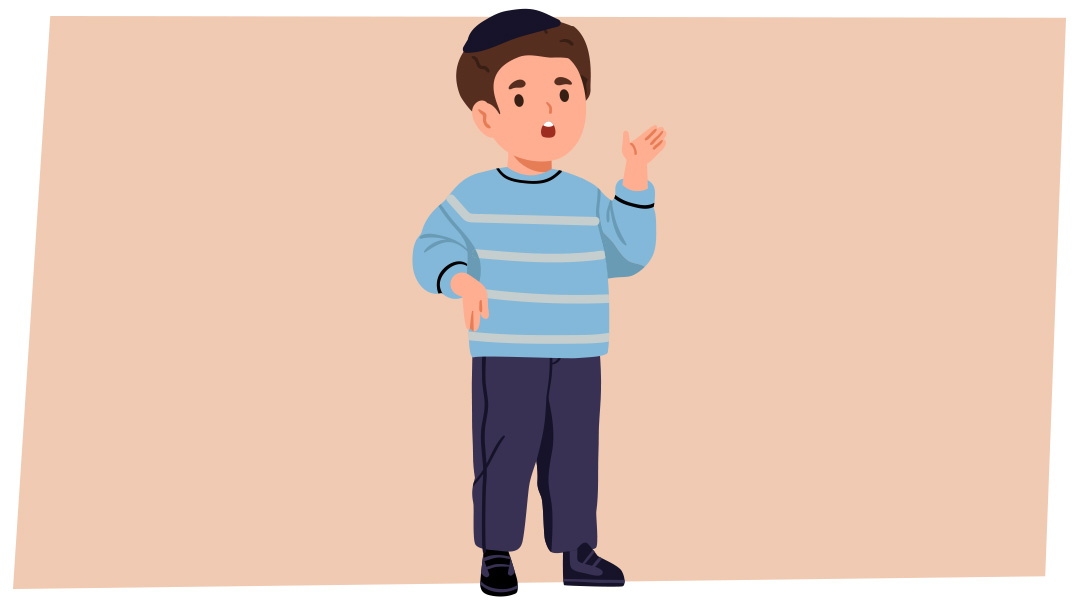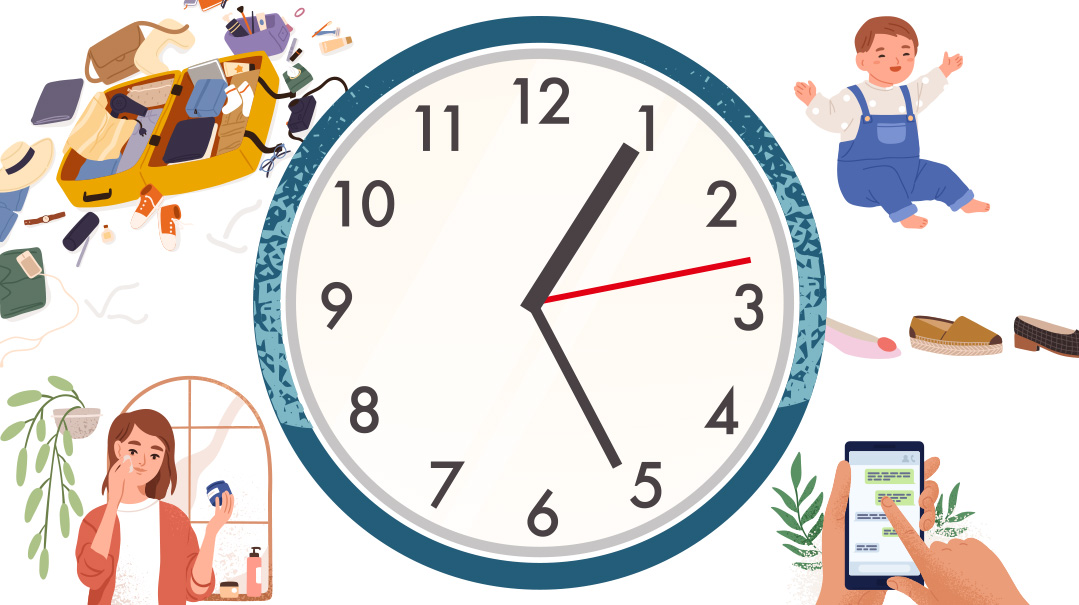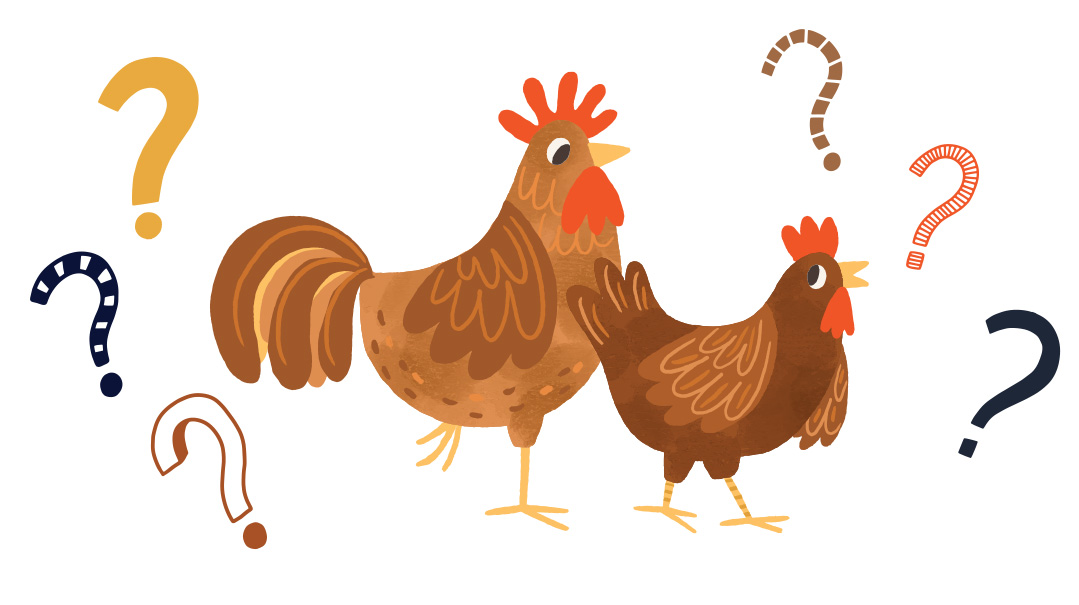No Pets Allowed
| July 25, 2023Warning: Any goldfish my kids bring home are an endangered species

“Can we please buy a puppy? Please? We’ll take such good care of it — you won’t have to do a thing!”
My children make this request so often that it’s now part of the perpetual soundtrack of my life, which includes other top hits such as, “I don’t want to go to school today,” and “It’s not fair that (insert friend’s name) is allowed to play outside when it’s dark and we have to come in!”
I remember my mother’s response when my siblings asked for a dog. She told us that she wished we could get one, but unfortunately, she’s very allergic to dogs.
Well.
No one’s going to argue with a legitimate allergy. It was a tough pill to swallow but resilient children that we were, we survived the disappointment.
Now when my children try their luck, I look them in the eye and gently say, “I wish we could get a dog, but unfortunately we can’t because Bobbi is very allergic.”
It’s not going over as smoothly as it did a generation ago. And undeterred, now my kids are branching out, asking for all sorts of other pets — both domestic and wild.
“All I need is a bird in a cage, please! The type that can talk!”
Oh yes, absolutely. Because it’s just not noisy enough around here, and I’d love to add to the cacophony.
“Ma, we all agreed that we’re willing to share one horse. Can you please buy just one horse?”
Informing my kids that a horse will be quite sad cooped up in the driveway next to our Brooklyn apartment does not help at all. They let me know they’re amenable to me renting a stall in a stable in the country for their horse, as long as I commit to driving them weekly to visit.
Great idea, kids, but due to some gaping logistical holes in that plan, it’s not going to happen.
Then came the Chol Hamoed when we agreed to compromise and bought a tank with a single beautiful betta fish. My husband installed the filter, water heater, and a hollow log for the fish to enjoy, and we were all set.
Needless to say, the same children who had sworn to feed, protect, and care for this fish were nowhere to be seen once the tank was set up on our counter.
I’m not saying I’m a pessimist, but I began to plan a eulogy for the fish from the day we brought him home.
He lived for three months before suffering electrocution in an ill-fated accident.
I know; it wasn’t how we expected it to end either.
It happened while my husband and I were out of town and the tank water was getting changed. Somehow, unbeknownst to the person changing the water, the heater had broken in the process. When the broken heater was placed back in the tank and plugged in…. You can fill in the blanks of this sad history.
We didn’t replace that betta fish, but that wasn’t the end of the pet saga.
A few weeks ago, my children came home with some goldfish they had won in a carnival.
I am resolute in my refusal to give a warm home to a puppy, kitten, bird, horse, or squirrel (all active requests as of the writing of this article), but how could I say no to a few harmless goldfish?
More importantly, how long could these carnival fish even live?
This wouldn’t be a long-term commitment, I reassured myself. We’d do a short stint as pet owners, and then we’d be done.
Did I have high hopes of a long and happy life for these fish?
Obviously not.
Am I genuinely shocked every morning when I wake up and see these fish swimming happily?
You have no idea.
SO now I’m the mom who cleans the fishbowl, changes the water regularly, and feeds the fish — with a sinking feeling that we’re only delaying the inevitable.
I’m trying to prepare my kids for the eventual demise of their pets, but it isn’t going exactly as planned.
With absolutely no research to back me up, I explained to my kids that for some reason these carnival fish don’t have a long lifespan. Sometimes it’s because they eat too much or too little or the water is too warm or too cold or the stars are simply not in alignment.
So now, every time my five-year-old walks into the kitchen, he asks, “IS IT KILLED?”
Every time.
Approximately 15 times a day.
“IS IT KILLED NOW?”
Determined to keep the fish alive for as long as possible, my eight-year-old reminds me to feed him. He takes this responsibility very seriously, going so far as to call me from school one day. When I answered the call from the school’s phone number in the middle of the day, heart racing, certain it was the nurse/secretary/principal calling with alarming news about one of my sons, it was just my eight-year-old reminding me to feed the fish.
Meanwhile, my six-year-old is busy with what will happen after the fish die.
I suggested we flush them down the toilet so they can return to the water from whence they came, but he recently informed me that he would like to bury them in the dirt.
He looked me in the eye and said, “I’m going to bury them when they die because that’s my minhag.”
Well. It’s certainly ill-advised to argue with someone else’s minhagim. And though the mesorah I received from my ancestors clearly mentions the flushing of fish who have passed on, and technically the traditions of my ancestors are my child’s traditions as well, no matter.
He can bury them.
When I told my friends and family that we had gotten goldfish and that I was anticipating their imminent deaths, I was bombarded with dozens of messages, the gist of all of them being: “GOLDFISH DON’T DIE!”
I beg everyone’s pardon? Do you mind repeating that?
Turns out that my friend Chavi had a goldfish that lived for eight years and grew so large that she almost had to move out to make room for it.
Miriam, who had only agreed to keep her children’s goldfish because she was certain it would be a short-term experience, finally gave the fish away to some seminary girls after eight long months.
My cousin let me know that his mother took care of his goldfish for 20 years!
IS THIS A JOKE?
On a related note, if anyone is looking to foster carnival goldfish, ours are looking for a new home.
We would have loved to keep them, but it turns out I’m very allergic.
(Originally featured in Family First, Issue 853)
Oops! We could not locate your form.







